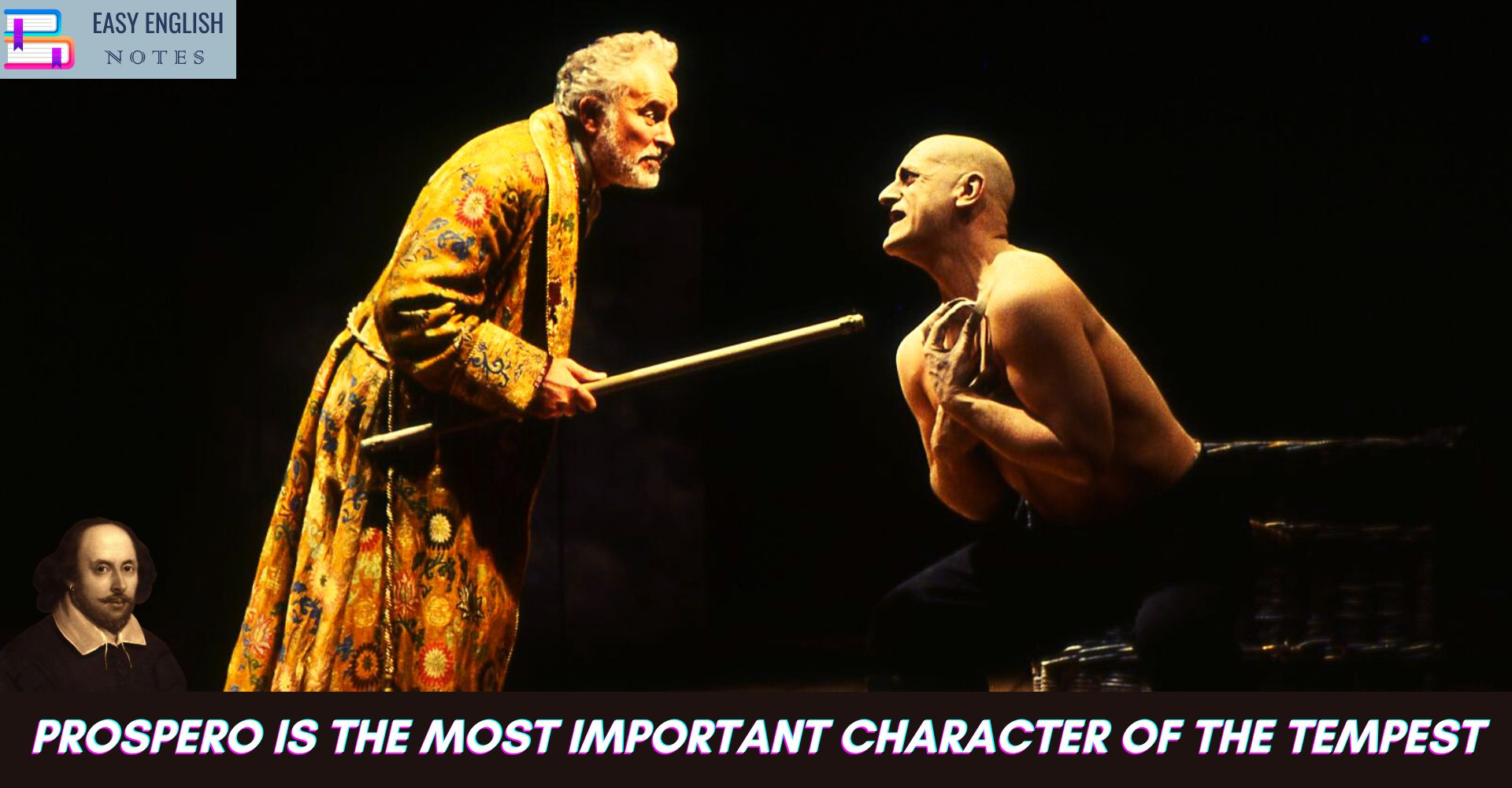It was Campbell, who in 1823 suggested that Prospero is Shakespeare himself and his magic is his dramatic art. The lines which hint farewell to the theatre are
I’ll break my staff, ……..I’ll drown my book
These lines have tempted critics to identity Shakespeare and Prospero. Northrop Frye says that there is in The Tempest something or Shakespeare’s farewell to his art. Dover Wilson writes that the above lines are his hinted farewell to the treater. Incidentally The Tempest is the last play of Shakespeare. Like Prospero, he renounced the magic of his art. But this is not enough to prove that Prospero is Shakespeare.
Shakespeare’s strange, non-historical play “The Tempest” is mostly based on an unjust event. One may think of Prospero’s brother usurping the kingdom as an example of an unjust deed. Prospero attempts to restore justice by regaining his authority, and this illustrates a dual position.
Consequently, it may be argued that the concept of justice, which is initially depicted in the tale as the return of Prospero’s authority, is incredibly individualized. Such a concept revolves around the viewpoint of a single character who controls the destiny and freedom of every other character.
It was Campbell, who in 1823 suggested that Prospero is Shakespeare himself and his magic is his dramatic art. The lines which hint farewell to the theatre are
I’ll break my staff, ……..I’ll drown my book
These lines have tempted critics to identity Shakespeare and Prospero. Northrop Frye says that there is in The Tempest something or Shakespeare’s farewell to his art. Dover Wilson writes that the above lines are his hinted farewell to the treater. Incidentally The Tempest is the last play of Shakespeare. Like Prospero, he renounced the magic of his art. But this is not enough to prove that Prospero is Shakespeare.
Also Read :
- Compare Hamlet with Macbeth, Othello and other Tragedies
- A Short Note On The Use Of Imagery In Shakespeare’s Sonnets
- Prologue to Canterbury Tales – (Short Ques & Ans)
Shakespeare is a chameleon poet and possesses the quality of Negative Capability. He is Prospero, surely enough. But he is also Touchstone. Hamlet, Falstaff, Viola, Portia and Othello. And, what is more true, he is none of them. He is only Shakespeare. He is Othello only so long as he is delineating Othello. He is Prospero only so long as he is portraying Prospero. After that he becomes someone else. And so he goes on, changing his identities like a chameleon. He becomes the character he is treating, because he merges his whole being into his character. This is the clue to his sympathetic treatment of characters like Shylock and Jacques. Had he permanently identified himself with anyone of his characters, he could not have become the other ones. But he is all his characters. And yet he is none of them. He is only Shakespeare. Prospero is the Poet himself.
Prospero’s character, created by William Shakespeare, first appears to the reader as a sympathetic one because of his brother’s unjust deed. To achieve justice, Prospero strives to restore his power. But such absolute power and control over the other characters’ fate and freedom questions the rightness of Prospero’s version of justice. It is impossible to assert, whether this character’s rule is just or unjust, whether he is just in his deeds and choices or not; one may only suggest that Prospero tried to establish his concept of justice by making others undertake his vision of justice and world order. And this created the sense of justice’s ambiguity in the story “Tempest”.
PLEASE HELP ME TO REACH 1000 SUBSCRIBER ON MY COOKING YT CHANNEL (CLICK HERE)











